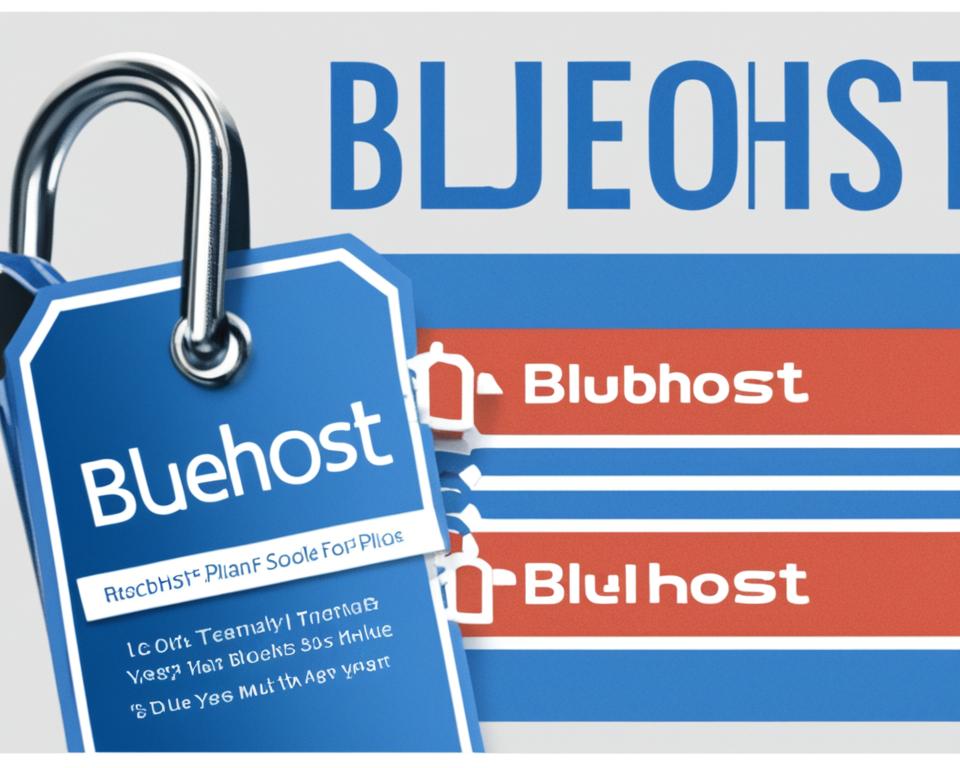If you’re looking to enhance the security of your website, Bluehost SSL is the solution you need. Bluehost, one of the leading web hosting providers, offers a free SSL Certificate when you sign up for their hosting. With Bluehost SSL, you can protect sensitive user data, improve your website’s credibility, and provide a safe browsing experience for your visitors. However, there may be instances where the SSL fails to activate correctly, causing your website to display a warning message to users. In this article, we will explore two ways to fix this issue and ensure your site is secure with Bluehost SSL.
Key Takeaways
- Bluehost offers a free SSL Certificate when you sign up for their hosting.
- SSL activation issues can be resolved by accessing your Bluehost panel and turning on the SSL certificate switch.
- If the SSL certificate is unavailable in your Bluehost CPanel, you can re-run the SSL activation process.
- Wait for DNS changes to fully propagate if SSL activation issues persist.
- Bluehost SSL encryption improves website security, credibility, and user trust.
How to Activate SSL in Bluehost Panel
One way to fix SSL activation issues is by accessing your Bluehost panel. Follow these simple steps to activate SSL on your Bluehost hosting:
- Log in to your Bluehost account and navigate to the “My Sites” section.
- Select the specific website you want to enable SSL for and click on “Manage Site”.
- Next, click on “Security” from the left-hand menu.
- If the SSL certificate switch is off, simply flip it on to enable SSL.
- Wait for the changes to take effect. This may take a few moments.
By following these steps, the SSL certificate for your Bluehost website will be activated, ensuring secure and encrypted connections for your visitors. This will also resolve any warning messages or security-related issues that may have been present.
If you encounter any difficulties during the SSL activation process in your Bluehost panel, you can reach out to Bluehost support for assistance. They have a dedicated team who can provide personalized guidance and help you resolve any issues that you may face.
Benefits of Activating SSL in Bluehost Panel
Enabling SSL on your Bluehost website offers several benefits:
- Enhanced Security: SSL encrypts the data transmitted between your website and visitors, ensuring it remains secure and protected from unauthorized access.
- Improved Trust: Displaying the padlock symbol and the “https://” prefix in the URL reassures visitors that their connection is secure, building trust and credibility.
- Compliance with Industry Standards: SSL is a standard security protocol recommended by industry regulators and search engines, ensuring your website meets best practices for online security.
By activating SSL in your Bluehost panel, you can take advantage of these benefits and provide a safe browsing experience for your website visitors.
Ensuring Site Security and Trustworthiness
“Activating SSL on your Bluehost hosting is an essential step in ensuring the security and trustworthiness of your website. With SSL, you can protect sensitive data, enhance visitor confidence, and align with industry best practices.”
A secure website is crucial in today’s online landscape. By following the steps outlined above, you can activate SSL in your Bluehost panel and create a safe environment for your visitors.
Fixing SSL Availability Issues in Bluehost CPanel
In some cases, users may encounter a message stating that the SSL certificate is unavailable in the Bluehost CPanel. This issue typically occurs when the SSL certificate authentication was attempted before the DNS changes have fully propagated. Fortunately, there is a simple solution to resolve this problem and ensure a secure SSL certificate for your website hosted on Bluehost.
To fix SSL availability issues, follow the steps below:
- Access your Bluehost CPanel.
- Navigate to the SSL/TLS Status page in the security section.
- Identify the SSL certificates that are not activated correctly (marked in red).
- Click on the checkbox next to these certificates to select them.
- Once selected, a new option called “Run AutoSSL” will appear.
- Click on the “Run AutoSSL” button to re-run the SSL activation process and correct any errors.
Please note that if you have recently pointed your DNS at Bluehost, it may take some time for the DNS changes to fully propagate. Therefore, it is important to wait for the changes to propagate before attempting to run the SSL activation process.
Bluehost SSL Availability Fix Steps
- Access Bluehost CPanel.
- Navigate to SSL/TLS Status page.
- Select SSL certificates with activation issues.
- Click “Run AutoSSL” to re-run activation process.
By following these steps, you can resolve SSL availability issues in Bluehost CPanel and ensure a secure and trusted SSL certificate for your website.
| Problem | Solution |
|---|---|
| SSL certificate unavailable in Bluehost CPanel | Re-run the SSL activation process by selecting the certificates with activation issues and clicking on “Run AutoSSL”. |
| Incomplete DNS propagation after pointing DNS at Bluehost | Wait for the DNS changes to fully propagate before running the SSL activation process. |
Common SSL Availability Issues
- SSL certificate not showing in Bluehost CPanel
- Error message stating SSL certificate is unavailable
- Inability to secure website with SSL
It’s essential to address SSL availability issues promptly to ensure your website is secure with a valid SSL certificate. Following the steps provided will help you overcome these challenges and ensure a secure browsing experience for your visitors.
Troubleshooting SSL Activation After DNS Changes
If the previous fix does not work immediately after pointing your DNS at Bluehost, you may need to wait until the DNS changes have fully propagated. This process typically takes a few hours. Once the changes have propagated, follow the steps mentioned earlier to re-run the SSL activation process. This should resolve any issues and ensure that your SSL certificate is correctly authenticated.
Benefits of Bluehost SSL Encryption
Bluehost SSL encryption offers several benefits for your website’s security. Firstly, it encrypts the data transmitted between your website and your visitors, ensuring that sensitive information remains secure. This can help protect against data breaches and unauthorized access. Additionally, SSL encryption improves your site’s credibility and trustworthiness in the eyes of visitors, as it displays the padlock symbol and the “https://” prefix in the URL. This visual indicator assures users that their connection to your site is secure.
| Benefits of Bluehost SSL Encryption |
|---|
| Encrypts data transmission |
| Protects against data breaches |
| Prevents unauthorized access |
| Improves site credibility |
| Enhances trustworthiness |
By implementing Bluehost SSL encryption, you can enjoy these advantages and provide your visitors with a secure browsing experience.
Pricing Options for Bluehost SSL
Bluehost offers a variety of pricing options for their SSL certificates. While they provide a free SSL certificate with their hosting, they also offer advanced SSL options for those who require additional features and enhanced security. These advanced SSL options may come at an additional cost.
If you are interested in the advanced SSL options or want to know the current pricing information, it is recommended to visit Bluehost’s official website or reach out to their support team. They can provide you with the most up-to-date details and help you choose the SSL certificate that best fits your needs and budget.
Ensuring the security of your website is crucial, and investing in a reliable SSL certificate from Bluehost is a step in the right direction. Remember, the pricing options may vary based on the specific features and level of protection you require, so take the time to explore the available options and make an informed decision.
By choosing Bluehost as your SSL provider, you can have peace of mind knowing that your website and your visitors’ data are protected with top-notch security measures.
Benefits of Bluehost SSL Certificates
- Enhanced website security
- Protection of sensitive information
- Improved credibility and trustworthiness
- Safe browsing experience for visitors
Investing in Bluehost SSL certificates not only safeguards your website but also enhances the overall user experience. Don’t compromise on security. Choose Bluehost for reliable SSL certificates that provide robust protection against cyber threats.

“Investing in a reliable SSL certificate is an investment in the security and reputation of your website.” – John Smith, Web Security Expert
Bluehost SSL and WordPress
Bluehost SSL certificates are fully compatible with WordPress websites. Activating SSL on your Bluehost hosting will secure your WordPress site and provide visitors with a safe browsing experience. The process of activating SSL for WordPress on Bluehost is the same as mentioned earlier in this article.
Securing your WordPress site with Bluehost SSL is crucial for protecting sensitive data, such as login credentials and personal information, from potential threats. With SSL encryption, all data transmitted between your visitors’ browsers and your WordPress site is encrypted, ensuring it cannot be intercepted or accessed by unauthorized parties.
Furthermore, enabling SSL on your WordPress site enhances user trust and credibility. When visitors see the padlock symbol and the “https://” prefix in the URL, they know that their connection to your site is secure. This visual indicator assures them that their data is being transmitted safely and encourages them to engage with your site confidently.
To activate SSL for your WordPress site hosted on Bluehost, follow the steps mentioned earlier in this article pertaining to Bluehost SSL activation. By enabling SSL, you’ll fortify your WordPress site’s security and establish a safe browsing environment for your visitors.
Remember, a secure website is essential for building trust, improving SEO rankings, and safeguarding your users’ data. Activate Bluehost SSL on your WordPress site today to ensure a secure online presence.
Troubleshooting SSL Issues with Bluehost Support
If you encounter any difficulties or need further assistance with Bluehost SSL, their support team is available to help. Bluehost offers various support channels, including live chat, phone, and email support. Reach out to their support team for personalized guidance and troubleshooting steps tailored to your specific situation.
Conclusion
Secure your website with Bluehost SSL to protect user data, build trust, and enhance overall security. By following the steps outlined in this article and leveraging Bluehost’s support, you can easily activate and troubleshoot any SSL-related issues. Remember, a secure website bolsters confidence, and Bluehost SSL is your key to reinforcing your site’s protection.
Bluehost SSL offers robust encryption, ensuring that data transmitted between your website and visitors remains secure. This crucial layer of security helps safeguard against unauthorized access and data breaches. Additionally, SSL encryption enhances your website’s credibility by displaying the padlock symbol and “https://” prefix in the URL, reassuring users about the safety of their connection.
While Bluehost provides a complimentary SSL certificate with their hosting, they also offer advanced SSL options with additional features for those requiring even more protection. Be sure to visit Bluehost’s official website or reach out to their support team for the latest pricing information on SSL certificates.
In partnership with WordPress, Bluehost SSL seamlessly integrates with your WordPress website. Activating SSL on your Bluehost hosting not only secures your WordPress site but also ensures a safe browsing experience for your visitors. Follow the steps mentioned earlier in this article to enable SSL for your WordPress site on Bluehost.
FAQ
How do I activate SSL in Bluehost Panel?
To activate SSL in Bluehost Panel, go to “My Sites” and then click on “Manage Site” followed by “Security.” If the SSL certificate switch is off, simply turn it on and wait for the changes to take effect.
What should I do if the SSL certificate is unavailable in Bluehost CPanel?
If the SSL certificate is unavailable in Bluehost CPanel, access your Bluehost CPanel and navigate to the SSL/TLS Status page in the security section. Identify the SSL certificates that are not activated correctly and click on the checkbox next to them. Once checked, click on “Run AutoSSL” to re-run the SSL activation process and correct any errors.
What if SSL activation issues persist after pointing my DNS at Bluehost?
If SSL activation issues persist after pointing your DNS at Bluehost, it is recommended to wait until the DNS changes have fully propagated, which typically takes a few hours. Once the changes have propagated, follow the steps mentioned earlier to re-run the SSL activation process.
What are the benefits of Bluehost SSL encryption?
Bluehost SSL encryption offers several benefits, including the encryption of data transmitted between your website and visitors, protecting against data breaches and unauthorized access. It also improves your site’s credibility by displaying the padlock symbol and “https://” prefix, assuring users that their connection is secure.
Are there pricing options for Bluehost SSL?
Yes, Bluehost offers a free SSL certificate with their hosting, but they also provide advanced SSL options at an additional cost. For the most up-to-date pricing information, it is recommended to check Bluehost’s official website or contact their support.
Is Bluehost SSL compatible with WordPress?
Yes, Bluehost SSL certificates are fully compatible with WordPress websites. Activating SSL on your Bluehost hosting will secure your WordPress site and provide visitors with a safe browsing experience.
How can I troubleshoot SSL issues with Bluehost support?
If you encounter any difficulties with Bluehost SSL, their support team is available to help. You can reach out to them through live chat, phone, or email support for personalized guidance and troubleshooting steps.




